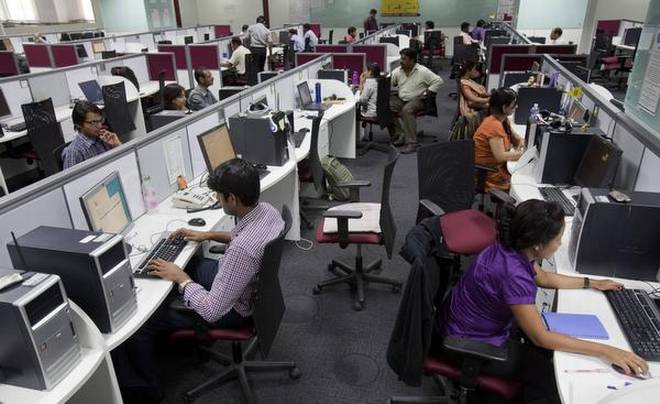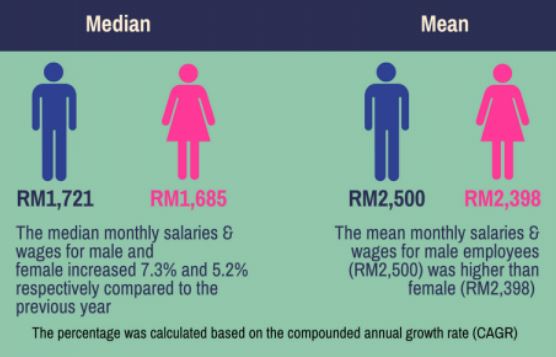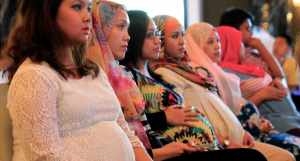It’s International Women’s Day once again, and as we look back on the years of progress women have made all over the world, we also look to the future of women in a variety of contexts. Although we’ve certainly achieved big strides in our quest for equality, the fight is far from over!
The findings of the World Economic Forum’s most recent Gender Gap Report for example, tell us that gender equality can only be achieved in 200 years. Perhaps what’s most frustrating is that Malaysia ranked 104 out of 144 countries, indicating that gender inequality is still a very real issue in our country. Yikes.
With this information in mind, it’s never been more important to raise awareness about the inequalities women face than right now, especially if we want to see significant progress in our lifetime.
Despite the progress Malaysian women have made over the years, one thing still remains unclear to many of us – why is there still a wage gap between women and men? Well, let’s start with some recent findings, shall we?
1. Recent statistics show that the gender wage gap still exists
In 2016, the Department of Statistics released their most recent Salaries and Wages report, and unfortunately, it looks like there’s still a significant gap in terms of pay between men and women in the country – a 4 per cent difference to be exact.
On top of that, there is no specific law that prohibits workplace discrimination in Malaysia, further reinforcing the idea that women’s contribution to the workforce is somehow less valuable than that of their male counterparts.
So, what’s the reason behind this alarming wage gap?
2. Marriage and motherhood could be one reason

Source: npr
Although the pay gap is prevalent, it appears that it specifically affects women of a certain age group. According to the Department of Statistics’ report, women aged between 25 and 34 years actually earn more than men.
However, salaries between the two genders become more disparate starting from 35 years of age – the age many women get married and start having children.
In a report by the New York Times, most women begin to earn less than their male spouses after marriage, largely due to the unequal division of labour at home. Regardless of whether a woman works full-time, wives are expected to do more at home and sacrifice more for their family, compared to husbands. Sari Kerr, an economist at Wellesly College, told the daily,
“It is logical for couples to decide that the person who earns less, usually a woman, does more of the household chores and child care. But it is also the reason women earn less in the first place. That reinforces the pay gap in the labour market and we’re trapped in this self-reinforcing cycle.”

Source: the hindu
There’s also a double standard that exists when it involved married men and women. Sociologist Michelle Budig was quoted as saying,
“Employers read fathers as more stable and committed to their work; they have a family to provide for, so they’re less likely to be flaky.”
“That is the opposite of how parenthood by women is interpreted by employers. The conventional story is they work less and they’re more easily distracted when on the job.”
As if unfounded stereotypes aren’t enough, turns out there’s another likely reason for the wage gap!
3. Women are 15% less likely to get promotions than men

Source: bbc
One reason that could explain the wage gap is the fact that women seem to get promoted less frequently than their male colleagues. According to research by LeanIn.org and McKinsey & Co., although men and women both equally want a promotion, women are 15 per cent less likely to obtain it.
This alarming finding boils down to how women (especially if they’re married with children) are generally perceived by their employers. An excerpt from a summary of their report reads,
“Contrary to popular belief, women are not leaving their organizations at higher rates than men. In fact, women in leadership are more likely to stay with their companies than men. At the senior vice president level, women are 20 per cent less likely to leave.”

Source: borneo post
“There’s a common misconception that women who start families are subsequently less ambitious in their careers. But mothers in the survey were 15 per cent more interested in being a top executive than women without children.”
Another possible reason behind this sad reality is that women are found to be less likely to negotiate for a raise. One of the main reasons behind this is that women tend to worry that asking for more money would damage their image. However, their fears are not unfounded, as research has shown that managers (regardless of their gender) are less likely to want to work with women who negotiate during a job interview. Seriously?
So, are there at least laws that can ensure that women aren’t getting underpaid compared to their male colleagues?
4. Do laws and policies allow for such wage gaps?
As we mentioned earlier, there is no specific law prohibiting workplace discrimination in Malaysia, let alone discrimination against women.
However, Putrajaya is reportedly working to introduce a Gender Equality Act. This act will supposedly be implemented in existing laws like the Employment Act, the Pensions Act, the Penal Code, and the Domestic Violence Act to take gender equality into account and make sure women are not being discriminated against.

Source: new straits times
Pregnant women can also sue their bosses if their 90 days of paid maternity leave isn’t approved.
Existing laws protecting women from such discrimination are unfortunately scarce in Malaysia, which is why many companies often get away with discriminating their female employees.
The wage gap has constantly been the subject of widespread scrutiny and debate ever since women entered the workforce. Although it’s definitely a complex issue involving multiple aspects that can’t possibly be covered in just one article, we think it’s an issue that everyone should be aware of. Pay inequality is a global phenomenon, and public officials cannot simply ignore the bitter reality that half of the world’s population has to face.
Let’s all do our best to be informed citizens and stand up for other women who may not have the platform or voice to do so. Here’s to a more progressive future. Happy International Women’s Day, y’all!
Also read: Pregnant M’sians Can Sue Bosses Who Don’t Approve 90 Days Maternity Leave







































